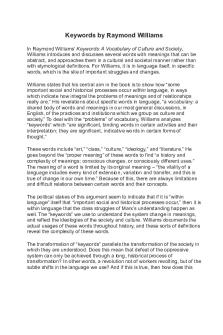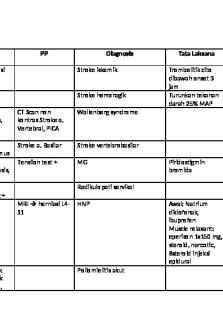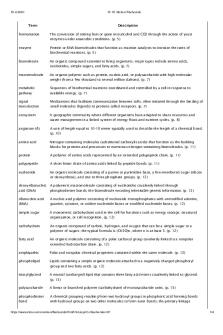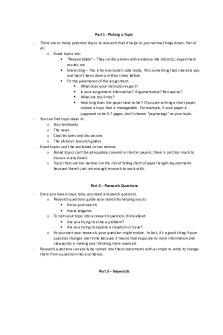Keywords by Raymond Williams PDF

| Title | Keywords by Raymond Williams |
|---|---|
| Course | StuDocu Summary Library EN |
| Institution | StuDocu University |
| Pages | 2 |
| File Size | 58.3 KB |
| File Type | |
| Total Downloads | 81 |
| Total Views | 130 |
Summary
Keywords : A Vocabulary of Culture and Society by Raymond Williams...
Description
Keywords by Raymond Williams In Raymond Williams’ Keywords: A Vocabulary of Culture and Society, Williams introduces and discusses several words with meanings that can be abstract, and approaches them in a cultural and societal manner rather than with etymological definitions. For Williams, it is in language itself, in specific words, which is the site of important struggles and changes. Williams states that his central aim in the book is to show how “some important social and historical processes occur within language, in ways which indicate how integral the problems of meanings and of relationships really are.” His revelations about specific words in language, “a vocabulary: a shared body of words and meanings in our most general discussions, in English, of the practices and institutions which we group as culture and society.” To deal with the “problems” of vocabulary, Williams analyzes “keywords” which “are significant, binding words in certain activities and their interpretation; they are significant, indicative words in certain forms of thought.” These words include “art,” “class,” “culture,” “ideology,” and “literature.” He goes beyond the “proper meaning” of these words to find “a history and complexity of meanings; conscious changes, or consciously different uses.” The meaning of a word is limited by its original meaning – “the vitality of a language includes every kind of extension, variation and transfer, and this is true of change in our own time.” Because of this, there are always limitations and difficult relations between certain words and their concepts. The political stakes of this argument seem to indicate that if it is “within language” itself that “important social and historical processes occur,” then it is within language that the class struggles of Marx’s understanding happen as well. The “keywords” we use to understand the system change in meanings, and reflect the ideologies of the society and culture. Williams documents the actual usages of these words throughout history, and these sorts of definitions reveal the complexity of these words. The transformation of “keywords” parallels the transformation of the society in which they are understood. Does this mean that defeat of the oppressive system can only be achieved through a long, historical process of transformation? In other words, a revolution not of workers revolting, but of the subtle shifts in the language we use? And if this is true, then how does this
change happen? Does it happen through the actual language itself – as in, through art and literature, through the shifting of ideologies in these forms of culture, which ultimately affect class? The implications of this seem very important – if these “keywords” are indeed the key to the end of oppression in the capitalistic system, then we very clearly hold the key to change. Williams’ argument seems to show that this is, in fact, possible through these “keywords.” Williams achieves understanding of these stakes through his analysis of certain complex words which all have significance in cultural studies. There are no clear-cut definitions within William’s “language.” The rhetoric of the argument is effective because he opens up new analyses on actual historical uses of the words. The original definitions and the dictionary definitions (even the good old OED) are not adequate enough to explain the importance of these words, which are not just vague concepts, but which actually and materially exist in the world. These “proper meanings” may illuminate the words in certain important ways, but they are not the real meanings because the words have undergone such radical transformation over time. These words are “strong, difficult, and persuasive” – just like the realities which they seem to represent....
Similar Free PDFs

Keywords by Raymond Williams
- 2 Pages

Texto DE Raymond Williams
- 8 Pages

Keywords UKMPPD
- 43 Pages

Romanticism- Keywords
- 3 Pages

BUS201 Keywords
- 5 Pages

Trait Theory by Raymond Cattell
- 5 Pages
![[07.1] Live de keywords](https://pdfedu.com/img/crop/172x258/zwrgkope9k31.jpg)
[07.1] Live de keywords
- 82 Pages

Raymond willams
- 36 Pages

Biokemi keywords samlet
- 29 Pages

Topics and Keywords
- 2 Pages

ejercicios raymond
- 10 Pages
Popular Institutions
- Tinajero National High School - Annex
- Politeknik Caltex Riau
- Yokohama City University
- SGT University
- University of Al-Qadisiyah
- Divine Word College of Vigan
- Techniek College Rotterdam
- Universidade de Santiago
- Universiti Teknologi MARA Cawangan Johor Kampus Pasir Gudang
- Poltekkes Kemenkes Yogyakarta
- Baguio City National High School
- Colegio san marcos
- preparatoria uno
- Centro de Bachillerato Tecnológico Industrial y de Servicios No. 107
- Dalian Maritime University
- Quang Trung Secondary School
- Colegio Tecnológico en Informática
- Corporación Regional de Educación Superior
- Grupo CEDVA
- Dar Al Uloom University
- Centro de Estudios Preuniversitarios de la Universidad Nacional de Ingeniería
- 上智大学
- Aakash International School, Nuna Majara
- San Felipe Neri Catholic School
- Kang Chiao International School - New Taipei City
- Misamis Occidental National High School
- Institución Educativa Escuela Normal Juan Ladrilleros
- Kolehiyo ng Pantukan
- Batanes State College
- Instituto Continental
- Sekolah Menengah Kejuruan Kesehatan Kaltara (Tarakan)
- Colegio de La Inmaculada Concepcion - Cebu




